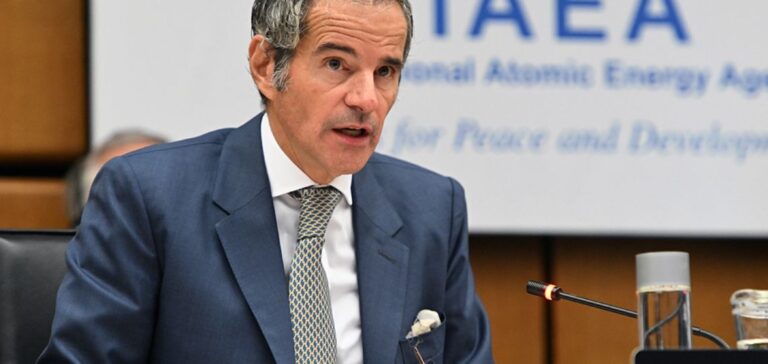Rafael Grossi, Director General of the International Atomic Energy Agency (IAEA), expressed, on April 17, 2025, the urgency of reaching a deal on Iran’s nuclear programme, as crucial negotiations between Iran and the United States are scheduled for Saturday in Rome. The IAEA, based in Vienna, is responsible for verifying Iran’s compliance with its international obligations regarding its nuclear programme, a field where tensions remain high.
The United States, Israel, and several European countries accuse Iran of seeking to develop nuclear weapons, although Tehran denies these accusations, insisting on its right to enrich uranium for peaceful civilian purposes, particularly for energy production. The main point of contention lies in Iran’s ability to enrich uranium to levels close to those necessary for the manufacturing of nuclear weapons, with significant stockpiles accumulated by the country.
A Crucial Negotiation Process
During his visit to Tehran, Grossi stated that the situation was “at a crucial stage,” emphasising that there was little time before discussions reached a point of no return. The IAEA plays a central role in these talks, both as a technical mediator and as the entity overseeing Iran’s compliance. Grossi met with Mohammad Eslami, Iran’s head of the Atomic Energy Organization of Iran (AEOI), but no details were given about the discussions that took place.
Negotiations between Iran and the United States, mediated by Oman, began last week. A key issue in the talks remains Iran’s stance on halting its nuclear programme, a “red line” for the Iranian government.
Geopolitical Impacts and International Pressure
The discussions are set against a tense geopolitical backdrop, where Russia, a signatory of the 2015 nuclear deal, also plays a crucial role. Although the agreement has fallen into disuse following the United States’ withdrawal in 2018, it remains an important framework for nuclear diplomacy. The US president recently warned against military escalation while calling for negotiations. However, an important aspect of the diplomacy is also marked by military tensions, with Israel having been dissuaded by Washington from striking nuclear facilities in Iran.
Meanwhile, Iran continues to face diplomatic pressure from its neighbours, notably Saudi Arabia, which recently sent its Defence Minister to Tehran.






















